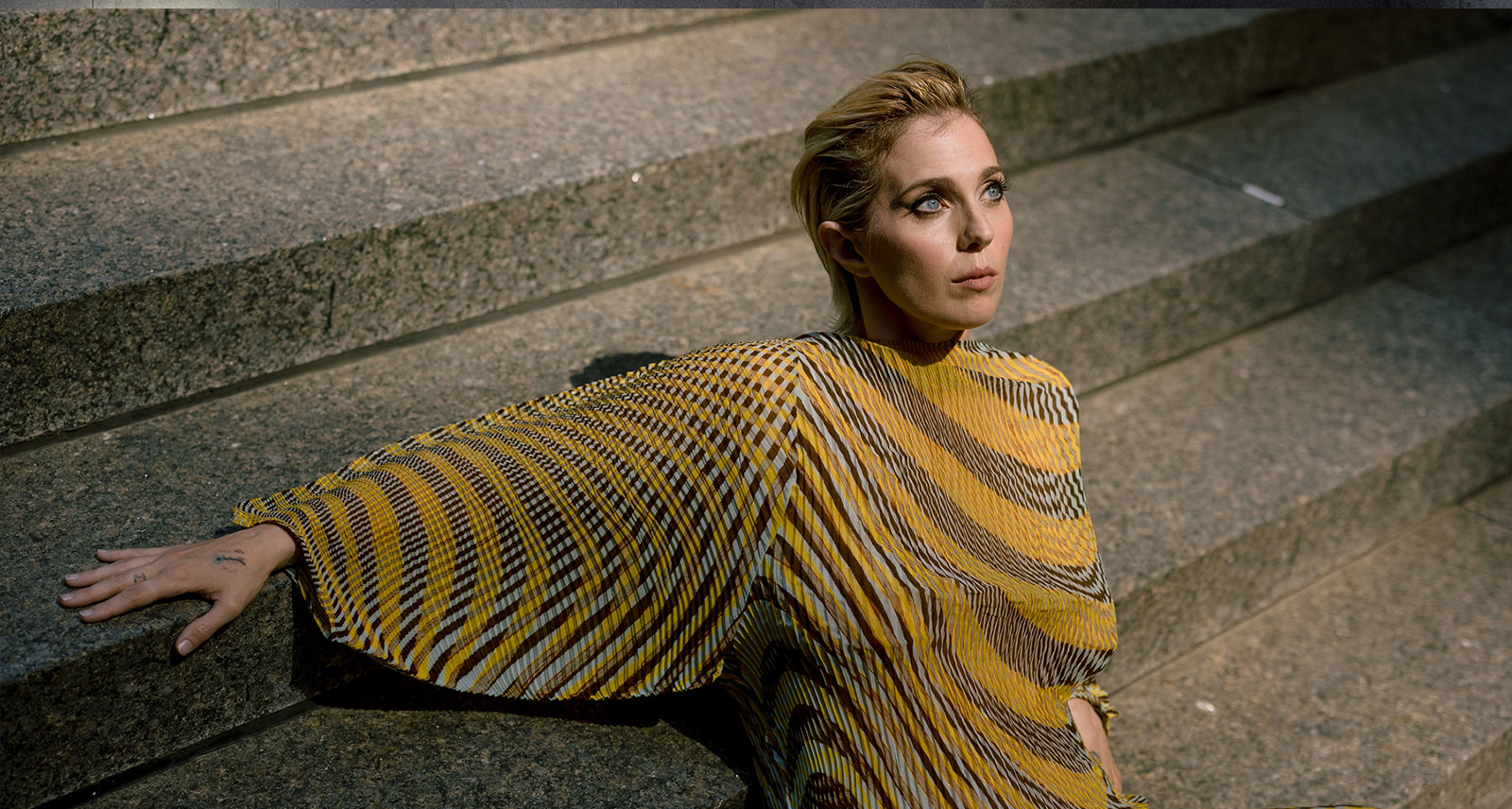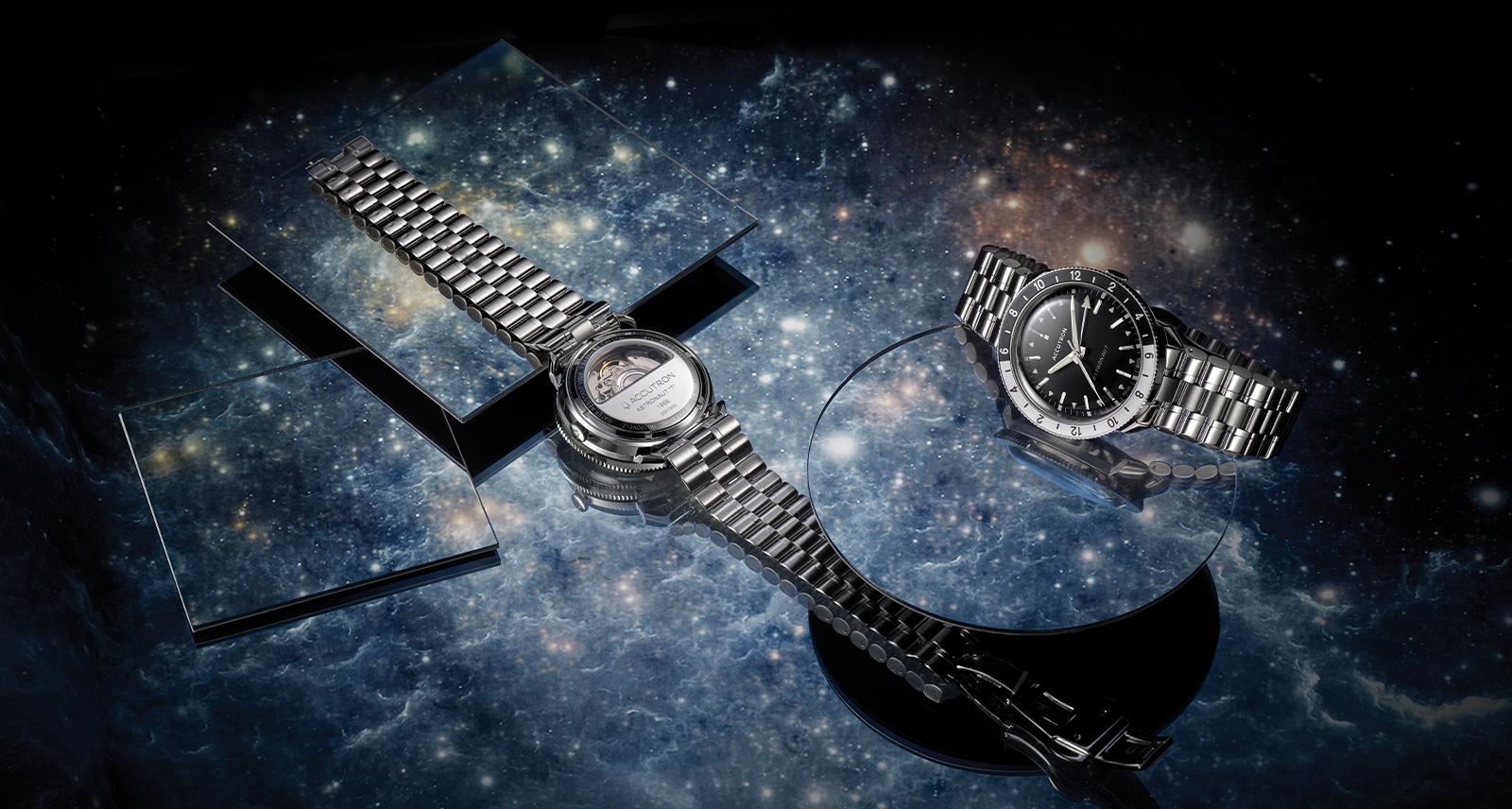Meghan Remy on Music, Parenting, and Sneaking Easter Eggs Into Commercials
Meghan Remy, the primary mind behind Toronto-based act U.S. Girls, has spent 15 years fashioning one of the boldest — one of the most pluralistic, surprising, outright enjoyable — acts in contemporary music. The inexplicable arc of Remy’s oeuvre began in the underground drone and tape-loop genre, and as of this writing has just released Bless This Mess, whose larger exposure could best be summarized by its first single “So Typically Now” playing in trendy bars and on Elton John’s Sirius XM show.
Remy will tell you this begins a new phase for U.S. Girls. Three years ago, right on the cusp of a pandemic that only emphasized its inward-looking pain, the group released Heavy Light, an album bookended with the emphatically danceable “4 American Dollars” and apocalyptic terror of “Red Ford Radio.” The following year Remy published Begin by Telling, an experimental memoir that astonished in its form, frankness, and curtain-pulling act on the obscurity that defined so much of U.S. Girls — a revelation of the corpus as wounded memoir.
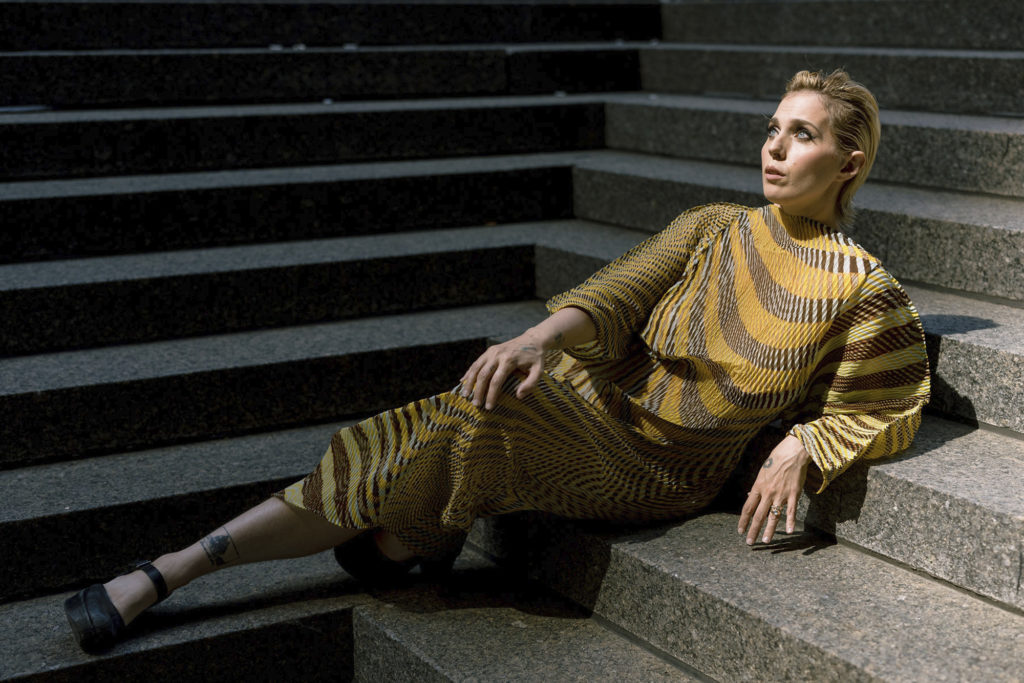
Bless This Mess continues U.S. Girls’ eccentric pop stylings, now shaded by Remy recently becoming a mother to twins. On the cusp of its release and an eight-show tour, SHARP Magazine spoke with the artist from her Toronto recording studio about the album, her place as an artist, and song-licensing as an act of subversion.
I’m not a musician, or even an artist — and this shows what I know — but after reading your book Begin by Telling I thought “she’s probably done making music.” It seemed such a fine point on the U.S. Girls project. Obviously, you’re not done, but in an interview with Rolling Stone you nevertheless said that the combination of Begin By Telling and Heavy Light’s autobiographical, direct-message angles necessitated that what came next, direct quote, necessitated that Bless This Mess “be a little more veiled.” How did that need affect the lyrical direction and musical tone at work here?
Well, thanks for all the compliments, first off. [Laughs] Giving interviews is difficult because whatever word comes out is the word that gets used, and sometimes you misuse a word. And “veiled” maybe wasn’t the exact, correct word. Even though it is. I think you’re accurate to say that Begin By Telling feels like some point that wraps up all the previous U.S. Girls work that came before it. Because I think it did — it does — and I’ll never really make songs that are… I mean, I can’t say “never,” but most likely not write music that’s so angry. [Laughs] And kind of really focusing on looking for the trouble, to shine a light on it.
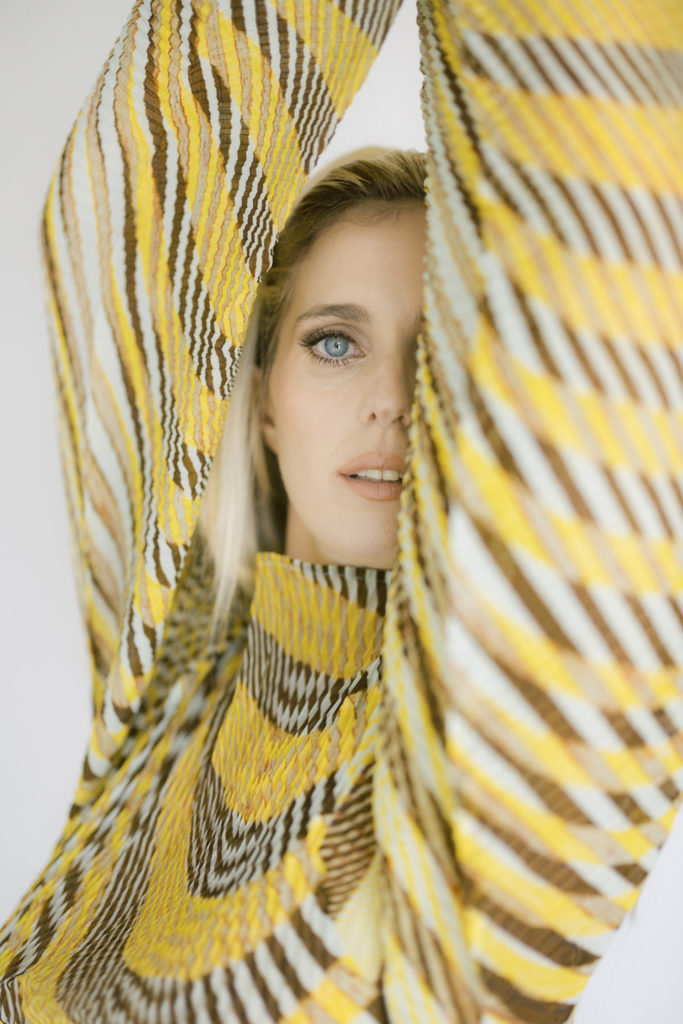
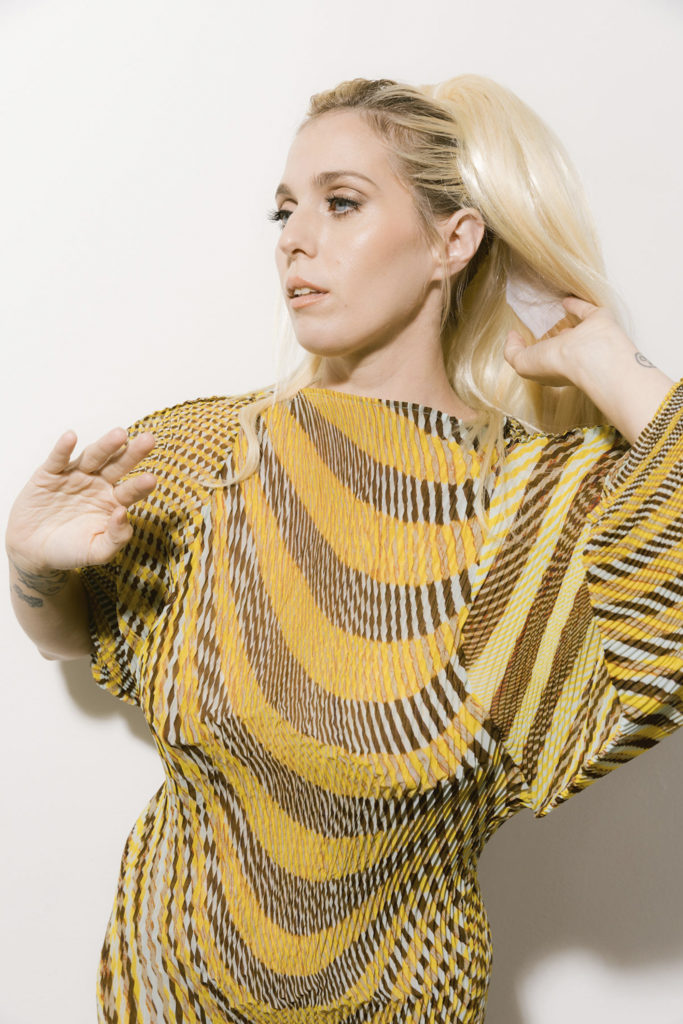
I think the process of writing the book was very humbling, and it was a process I’d never done before. So much of it was about what not to put in. You know? I wrote and I wrote and I wrote, and then I worked with my friend who is my editor and we took so much out. Because so much of it, I was talking about other people, and it wasn’t really my place to do that. I think that memoir — similar to a documentary, these kind of reality forms — are super-troubling. They’re very complex and… yeah, there’s something about them that can’t be trusted [Laughs] right off the bat.
So the “being more veiled” aspect I think, maybe, is more about how I was operating in life previously — even within my work — and how it wasn’t actually serving me well. I was attempting to act that I knew more than others, or that my hurt, in a situation, was the biggest hurt. You know? This kind of thing. I think, when people have children they can’t be as cynical anymore. It’s impossible when you have these [Raises Arms] little eyes looking up at you, who don’t have any experience yet with the kind of dark side. You want to hope it’s going to get better for them because you don’t want them to think it was just an egotistical action to bring them in. You wanting to see yourself in the world again, or something. I think there’s something about the work previously. I’m not, like, repelled by it now, but it’s kind of like when you write someone an angry letter and then you look back on it and you’re like, “Ohhhh” years later. “I wish I had waited to write that.” I mean, I’m rambling now. I don’t even know if I answered your question.
No, you did.
I think I’ve just aged. You know what I mean? I’m aging. I’m definitely a contrarian, and as the world gets angry I find I’m getting more calm. [Laughs] I think anger used to feel subversive to me — especially sassy anger, like theory spoken plainly. I think I really liked that because it made me feel better than people. Unfortunately, deep down, if I’m going into my [Laughs] self-conscience. I think I thought it would help people. But if I’m looking at it, it was more of a “I’m gonna write smart lyrics kind of thing.” A lot of the stuff I was writing — I wasn’t fully in my body. It’s really hard to write from your body and your perspective, listening to it. Not just from your brain. You know? I think that’s been a big switch.
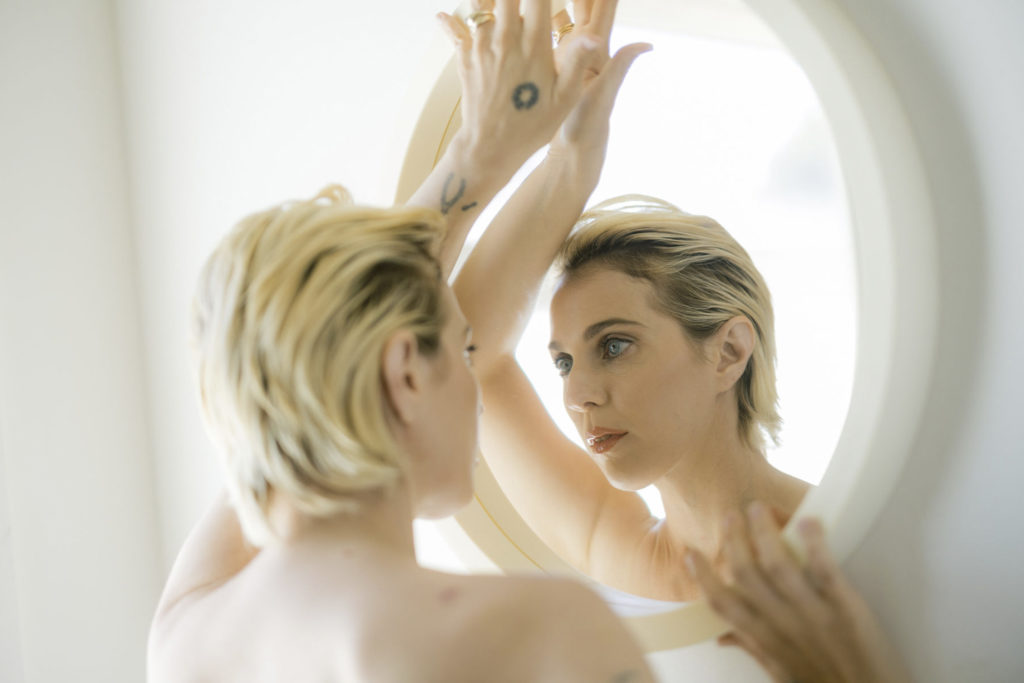
My favorite song on Bless This Mess is “Futures Bet,” and what fascinates me, what I find deeply moving — again: maybe I’m so interested in your work as a memoir that I’m reading too much into it — is that it seems to come from a more maternal place. Its refrain (“nothing is wrong, everything is fine; this is just life”) sounds like comfort a parent would give their child. And there’s its doubling, parallel motif: “I’m you. You’re me. Breathe in. Breathe out.” Yet the music video is much harsher — this vision of waste and pile-up and cascading destruction — while the song is held so close to the chest.
Yeah. I’ve had to think a lot about what it would mean to be a parent. What kind of parent would I want to be? What does it mean? What are things my parents did that I want to keep? What are things I definitely don’t want to do? What’s the role of a parent in this day and age, apparently? It just seems to keep coming back to: it’s your job to tell them the truth as close as you know it to be about things while also encouraging them. [Laughs] So this is how it is but: that’s okay, and what can we do to make it better? What is life? And that’s the hardest thing. I think it’s a misconception that children are not supposed to know about death or war or violence. I think it’s confusing to leave that out because they sense things so acutely. They just know things. I feel like their sensors are so much sharper than ours because there’s no training yet — so they’re just kind of fresh.
But I find that… it’s funny. The intention with the video wasn’t really to be harsh. It was to show, basically, how extravagant trash is now. [Laughs] And that it’s like a visual sensation, literally. And what can be done about it? There’s literally nothing that can be done about it. So, we must accept the trash, and maybe different ways of looking at it. Like: can I be in awe of trash for a moment? Just as a visual situation. As a numbers thing, can I be in awe of this? What will that then make me think of? Looking at things holistically: I’m going to look at this trash pile and I’m going to try to find a way to look at it in a light way and in a dark way, and what does that do to my brain? I think we might have better luck stoking ideas for what to do with the trash by not hating it as much. [Laughs] Because we hate ourselves then. Because the trash is us. Like, it’s literally us. And it’s this thing that we just can’t stop doing because trash is partially the trail of our survival or whatever. You know? It’s just not going anywhere anytime soon because any of these “green” options that are coming out — it’s still by stuff that creates trash. Maybe your packaging is “biodegradable” but the driver who drove your truck probably had a bag of chips driving them. [Laughs] You can’t undo it.
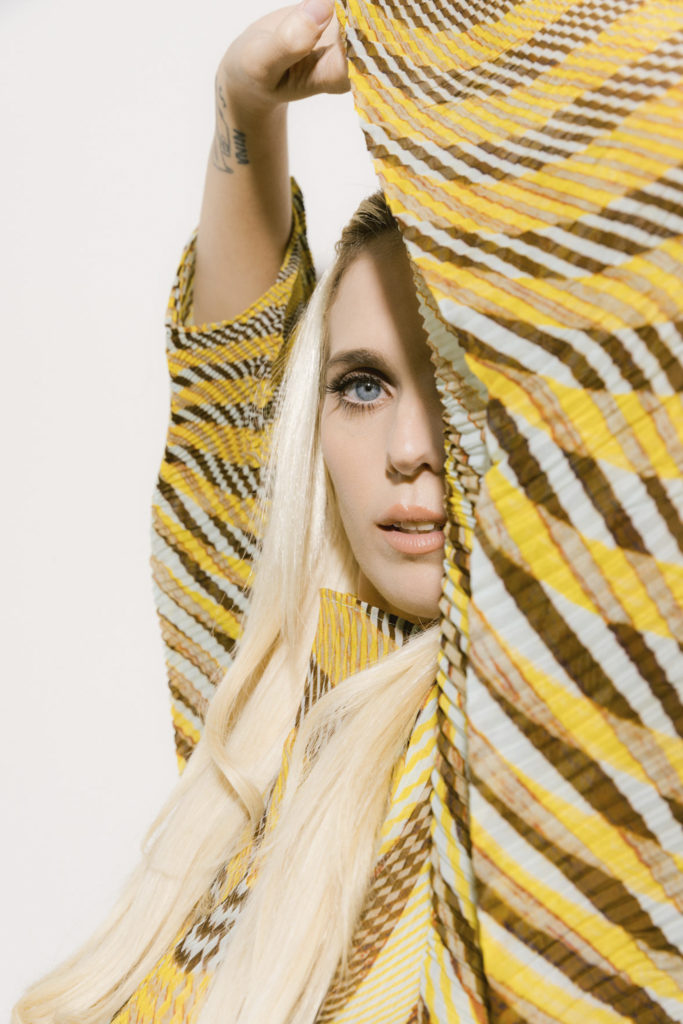
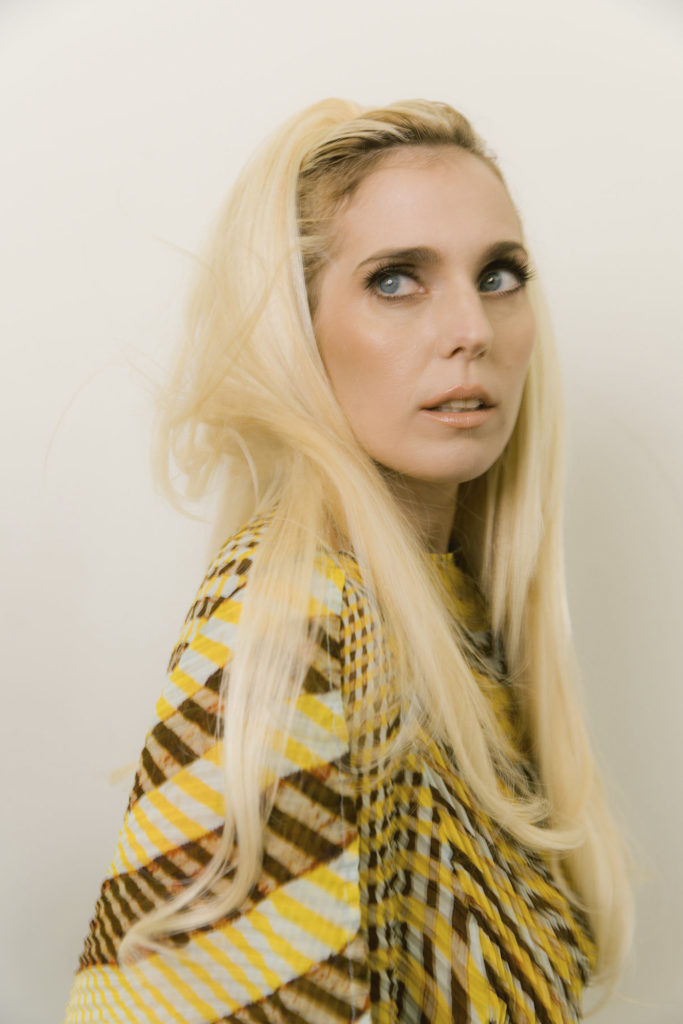
What, as of late — especially in non-music realms — has enriched you? Film, literature, art galleries.
Lots of things always. I just watched this movie Frownland, from 2007 or something. That was shocking. I found it a really shocking film — just the way it looked and the performances in it. Left me extremely unsettled. Left me not really knowing what to think — therefore forcing me to think. Yeah, I couldn’t believe that film. And a friend of mine, Emily Pelstring, who I’ve done a bunch of music videos with — the “Navy and Cream” video, for example — she just had an exhibit up at the Kitchener-Waterloo Gallery. I think it closed in January. But she made stained-glass windows herself — she learned the technique of stained glass — and she made these picture windows like what you’d see in a church: the shape with the point at the top, and they are just hanging in a gallery, but each one has a projector on it and it’s making the images that are on the glass come to life. So if there’s a jug with a hand pouring water, the water is moving out of the jug from the projector, but the light is also shining through and casting on the floor. So the animation’s happening on the floor. There was a sound component as well, and it was all revolving around the character of the Hag — which is a very classic character in stories — and it was so comprehensive.
I just couldn’t believe I knew the person who made this. That it had physical elements, video elements, figuring out just how to get the mapping for the projections over the stained glass. It was very inspiring to see someone work in so many mediums for one outcome. And it didn’t feel clunky. It felt holistic, all as one thing. It was the first art exhibit that we took our kids to and they loved it. So it was fun to observe them watching it as well. And it was free, so it was all-around a good thing.
A few months I caught the Google Pixel commercial that uses the instrumentals from “Poem,” your song from In a Poem Unlimited. I was surprised, as the song has a couple of lyrics that seem almost satirical if they were to have been played in a commercial, specifically “While you’re looking at your phone…”, and the refrain, “No one needs to make a profit; no one needs to get paid.” I don’t know if you can answer this on the record, but was it a bit of a gag on your part?
I mean, on my end it was. I was contacted and they only wanted the instrumental. For me it’s like: “Okay, that’s fine. But did you listen to the lyrics? Because if someone likes this song and they go and…” It was just too good to pass up: that they would consciously place that song with those lyrics. It seemed like it’s just an easter egg waiting for people to find. But also: when these things come up you have everyone around you saying “You have to do this. This can lead to this.”
Regarding the money, I didn’t actually see a dime in my bank account from it. It just went off towards paying my debt to my label. So, it goes towards me hopefully making money in the future, but I haven’t had lots of placements. So that’s the way people pay off their debt: you’re getting a few big placements in a row, plus things are selling, and then your bill gets wiped off and you start seeing royalties. Because up until that point the only place you’re seeing money is playing live and publishing coming in if you’ve been played on Sirius XM, which is the main place that pays out.
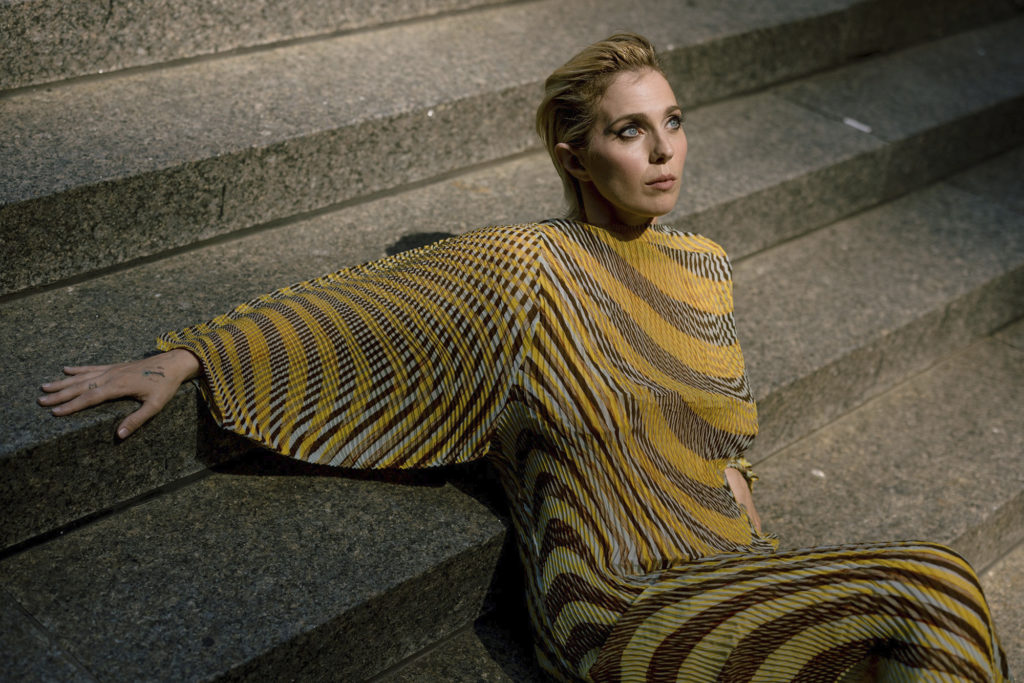
I’ve had to think about this a lot because this isn’t the first time “Poem” has been wanted. There was a credit card company, once, that wanted “Poem.” And it was a lot of money. And I had to really think about it. It’s funny, because I’m not in any sort of place to be able to turn down money. And I don’t think that — my husband and I were just having this talk — this idea of selling out or giving your music to someone: that’s a luxury idea. Only people who have money or a really good support network — those are the people who have that luxury of choice, of earning a living versus deciding where and how they want their art used. At this point we’re all complicit in it, so to point a finger at some band who puts a song in a thing or, I don’t know, someone who starts doing a clothing line or something… I don’t know what the equivalent would be for other artforms.
It’s awesome you did that.
[Laughs] I mean, how could I not? It was just funny. You know what I mean? My vocal teacher, who I worked on “Poem” with a lot — we sang it live at an awards show once — when she heard it she was like… and multiple people have hit me up about it being like, “Do they know what the lyrics to the song are?” They didn’t even check out the original thing. That just kind of tells you something about this whole situation in general. I think that we’re living in the time of a lack of vision and a lack of interest and a lack of detail-oriented processing. It’s all very first-thing, surface, how-does-this-fit, this-is-this, taking it at face value. So yeah. I think it’s great.
